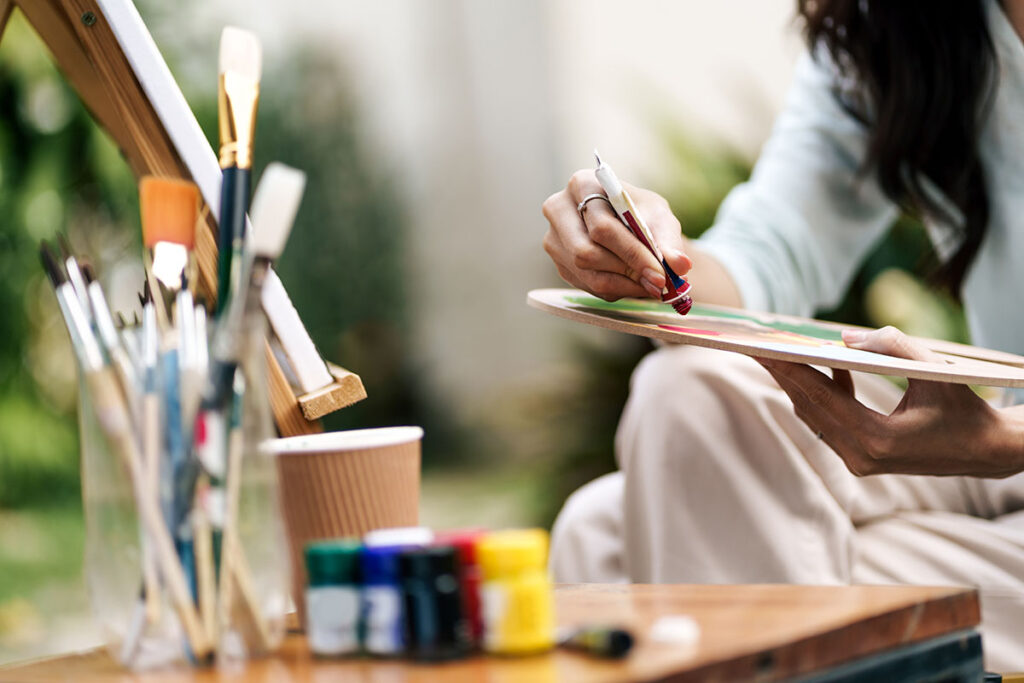Trauma can have a profound impact on a person’s life. It can affect one’s mental, emotional, and physical well-being. One promising approach to coping with trauma is through art therapy. This creative form of therapy offers substantial benefits for those who have experienced trauma. It provides a non-verbal outlet for emotions and thoughts that might be too difficult to articulate.
Peer Mental Wellness offers an art therapy program in Santa Ana. Contact us at 714.844.5473 today to learn more.
Understanding Art Therapy for Trauma
Art therapy serves as a powerful tool in trauma treatment. It is a form of expressive therapy that uses the creative process of making art to improve a person’s physical, mental, and emotional well-being. In the context of trauma, art therapy provides a way for individuals to express their experiences visually when words may not suffice. This method of self-expression can often lead to relief from overwhelming emotions, fostering resilience and recovery.
Some benefits of art therapy include:
- Providing a safe outlet for emotions
- Encouraging self-expression and reflection
- Promoting relaxation and stress reduction
- Fostering a sense of control and empowerment
- Stimulating cognitive functioning and memory recall
- Nurturing self-esteem and confidence
Art therapy can take many forms, such as painting, drawing, sculpting, and collage-making. These activities can be tailored to individual interests and abilities, making them accessible to anyone regardless of their artistic background or skill level.
Art Therapy Activities for Trauma
Here are some simple art therapy exercises that can benefit those struggling with trauma:
- Draw your feelings – Using colors, shapes, and images, draw how you feel in the present moment. This can provide insight into your emotions and help you process them.
- Create a safe place – Using art materials, create an image of a safe and comforting space. This can serve as a reminder that safety and comfort are attainable.
- Make a gratitude collage – Cut out images or words from magazines representing things you are grateful for. This exercise can help shift focus to the positive aspects of life.
- Use clay to express emotions – Mold and shape clay while focusing on a specific emotion. This exercise allows for a tactile experience and can provide a physical outlet for intense emotions.
If you or someone you know is struggling with trauma, don’t hesitate to seek help through art therapy.
Art Therapy Exercises for Trauma
Here are a few more art therapy exercises specifically designed to address trauma:
- Trauma timeline – Draw a visual representation of your life before, during, and after the traumatic event. This exercise can aid in understanding how the trauma has affected you and identify areas for growth.
- Create a self-portrait – Use various art materials to create an image representing yourself. This can help you explore your identity and sense of self after experiencing trauma.
- Collage a future vision – Using images or words from magazines, create a collage depicting your hopes and dreams for the future. This exercise can inspire hope and motivate healing.
- Paint to music – Listen to music that evokes emotions related to your trauma while creating an abstract painting. This exercise can help process difficult emotions and promote emotional release.
Art therapy is a valuable tool in the journey towards healing from trauma. It offers a safe and non-judgmental space for self-expression and can significantly improve overall well-being.
Call Peer Mental Wellness for Art Therapy Programs
Art therapy offers a promising avenue for trauma recovery. Individuals can express their experiences, process their emotions, and foster resilience through various activities and exercises. While the journey may be challenging, the transformative power of art serves as a beacon of hope, guiding individuals toward healing and recovery.
If you or someone you know is grappling with trauma, consider reaching out to a professional art therapist or mental health professional for guidance and support. And remember, sharing is caring – spread the word about the benefits of art therapy for trauma to help others on their healing journey. Contact us today at 714.844.5473.




